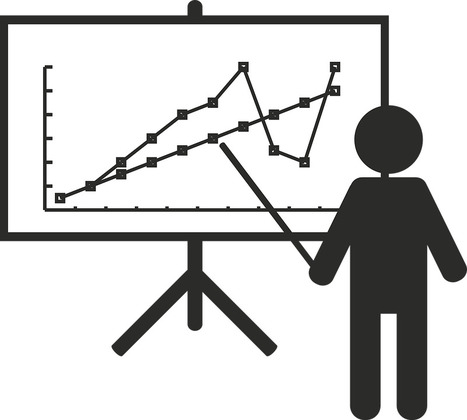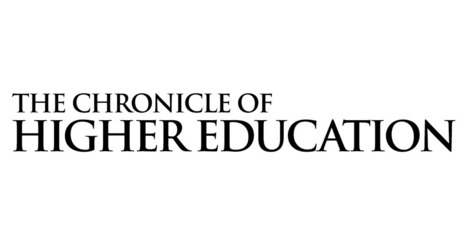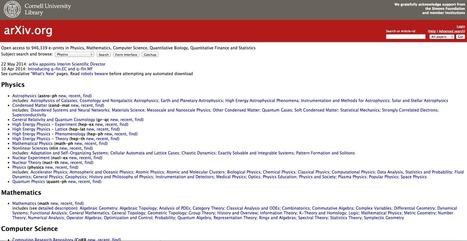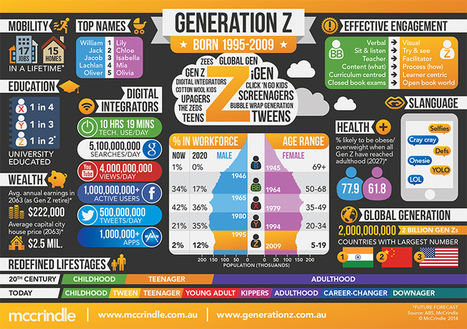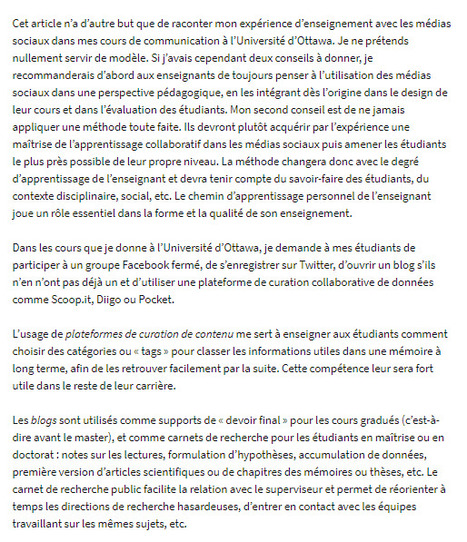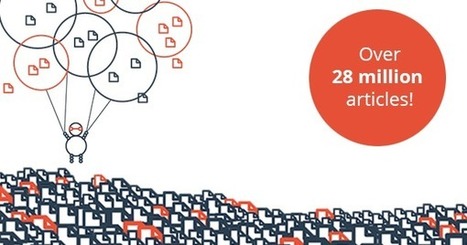
|
Rescooped by Gilbert C FAURE from iGeneration - 21st Century Education (Pedagogy & Digital Innovation) |
Get Started for FREE
Sign up with Facebook Sign up with X
I don't have a Facebook or a X account

 Your new post is loading... Your new post is loading...
 Your new post is loading... Your new post is loading...
No comment yet.
Sign up to comment

Tina Jameson's curator insight,
September 20, 2018 7:29 PM
Highly recommended reading - and if you don't feel like reading, listen to the linked podcast version. Not only does this article stress the value of note taking to learning and understanding, it provides several well outlined note taking strategies to try.

Julien Hering, PhD's curator insight,
July 6, 2014 2:35 PM
Science 2.0, open acces archives of pre-print articles, social media measurement of impact of these article... is there a future for traditional publication pathways ?

Ricard Garcia's curator insight,
November 28, 2013 2:52 AM
We should have a look at the data provided by this infography to learn about the people who will be ruling the world in our near future... the people we are educating now. 
Beatriz Montesinos's curator insight,
November 28, 2013 5:42 AM
Excelente estudio sociólogico de la Generación Z (niñ@s nacidos entre 1995 y 2009) realizado por la empresa australiana McCrindle.

Federico Guerrini's comment,
October 2, 2013 5:06 AM
Actually, I believe it will become more and more important, as an issue, as newsrooms cut staff, especially foreign correspondents

socialNONmente's curator insight,
October 2, 2013 6:54 AM
La "Content Curation" è una nuova forma di giornalismo? Se lo è chiesto un giornalista freelance italiano specializzato in tecnologia, Federico Guerrini, in una ricerca commissionata dal Reuters Institute for the Study of Journalism 
David Sallinen (WAN-IFRA)'s curator insight,
October 3, 2013 4:48 PM
newsroom curators to engage readers ! |

Gust MEES's curator insight,
February 22, 2018 4:23 PM
Pierre Lévy Professeur à l’Université d’Ottawa. Ce travail est la pré-impression d’un article dans le numéro 58 de RED. Il sera publié en tant que contribution d’invité, dans le genre «histoire personnelle comme recherche éducative» (Personal History as Educational Research). Cet article n’a d’autre but que de raconter mon expérience...
Learn more / En savoir plus / Mehr erfahren:
https://gustmees.wordpress.com/?s=curation
https://gustmees.wordpress.com/?s=blogging

Gust MEES's curator insight,
December 2, 2016 4:21 PM
We are building a visual interface to the world's scientific knowledge to change the way we discover research.
Learn more / En savoir plus / Mehr erfahren:
http://www.scoop.it/t/21st-century-learning-and-teaching/?tag=Research

Victoria Marín's curator insight,
December 6, 2016 9:01 AM
Interesting open project aimed at visually mapping scientific knowledge.

Louise Robinson-Lay's curator insight,
January 12, 2014 3:57 PM
This is an important skill for students to learn. This slides how is a great step-by-step approach to teaching it.

Deanna Dahlsad's curator insight,
October 15, 2013 3:59 PM
Robin Good of Content Curation World breaks the findings down thus: a) what people curate as relevant is not generally among the top ranked results according to popular metrics. Good stuff is not the same as what is considered normally popular or authoritative stuff. b) content curation allows a community to synchronize around specific issues and subjects (as anticipated by Clay Shirky) c) better and more appreciated curation is of the "structured" kind, providing additional info, meta-data and categorization. d) curators that are highly appreciated are characterized by consistent activity and by a variety of interests (or viewpoints under the same theme) that they are capable to cover. This is rather my experience; however, I usually explain it to my clients this way: a) You can be doing an excellent job, but never receive the recognition, popularity, or traffic you deserve.That doesn't mean you won't be appreciated greatly by the smaller group of people who do find/read your curated works. b) No matter the popularity of your curation, you can build and have conversations -- but remember, community cultivation not only requires additional time, but a different skill set. c) If you're going to do it, do it well. Use tools, such as labels and tags, and *always* provide context as well as proper credits and links. d) Consistent activity is nearly as important as showing some personality along with your knowledge. Your topic may be narrowly focused, but offer additional topics and information about you personally (not just professionally) so that people get a sense of you. 
Carmenne Kalyaniwala's curator insight,
October 16, 2013 2:17 AM
A research paper by Zhong, Shah, Sundaravadivelan and Sastry, King's college London, 2013 
AnneMarie Cunningham's curator insight,
October 17, 2013 8:28 AM
See the excellent notes from Robin Good below. Interesting to see more work emerging in this field. |





